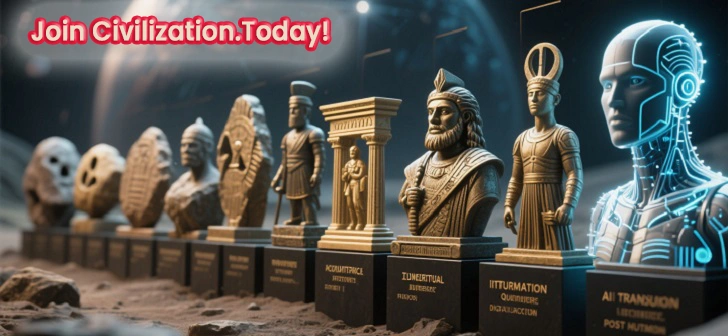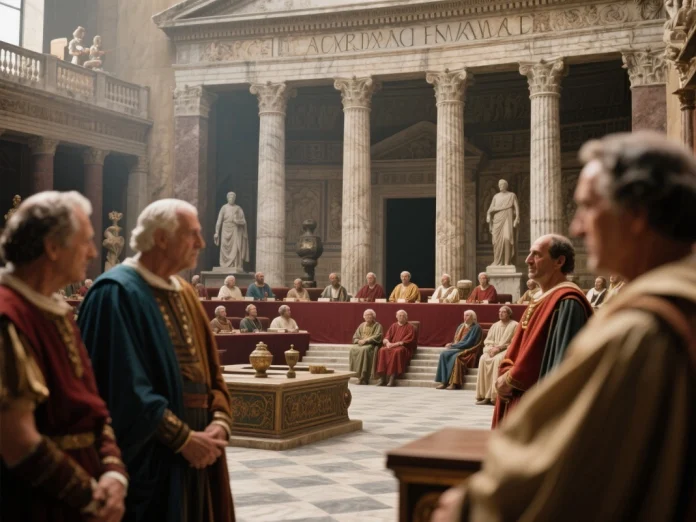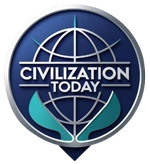When we think about democracy and governance today, most minds turn to modern parliaments such as the British House of Commons, the U.S. Senate, or the European Parliament. Yet, long before these institutions rose to power, the ancient Roman Senate set the blueprint for political debate, legislative authority, and the delicate balance between rulers and representatives. The Roman Senate legacy is far greater than a footnote in history—it is the very foundation upon which modern representative governments are built.
This article explores the origins of the Roman Senate, its political influence, and how its principles echo in parliaments across the world today.
The Birth of the Roman Senate
The Roman Senate began in the early days of the Roman Kingdom around the 8th century BCE. Initially, it served as an advisory council to Rome’s kings. Composed of elder statesmen, or senatores (literally meaning “old men”), the Senate embodied wisdom, experience, and authority. Over time, as Rome transitioned from monarchy to republic, the Senate’s influence grew exponentially, evolving into the backbone of Roman governance.
Its members, drawn from Rome’s aristocracy, controlled state finances, foreign policy, and legislation. They debated vigorously, influenced magistrates, and ensured that the Republic maintained stability amidst expansion and conflict. Though not fully democratic—since common citizens had limited access to power—the Senate’s structure introduced the idea of deliberative governance, a cornerstone of modern political systems.
The Roman Senate in the Republic Era
During the Roman Republic (509–27 BCE), the Senate’s role expanded significantly. While citizens voted for consuls and tribunes, the Senate provided continuity and expertise. Its debates shaped Rome’s policies, from war strategies to trade agreements. The Senate acted as a stabilizing force against the volatility of annual elections, ensuring institutional memory and long-term planning.
Key features of the Senate in this era included:
- Checks and Balances. The Senate did not hold absolute power but counterbalanced consuls and tribunes, similar to modern legislative-executive checks.
- Rule of Law. Senators debated laws that applied to citizens and magistrates alike, an early form of legal accountability.
- Diplomacy. The Senate oversaw foreign relations, much like today’s parliaments ratify treaties and manage alliances.
This system, though imperfect, created a governance model that influenced thinkers for centuries.
The Decline and Transformation under the Empire
With the rise of the Roman Empire, the Senate’s authority waned. Emperors such as Augustus and later rulers stripped the Senate of much of its power, reducing it to a symbolic institution. It retained ceremonial roles and administrative functions but lost its legislative dominance.
Yet, even in decline, the Roman Senate legacy survived. The idea of a council of representatives, chosen from the elite or citizenry, remained deeply ingrained in political thought. Medieval European councils, church synods, and feudal assemblies all drew upon the Roman example, keeping alive the spirit of senatorial governance.
The Roman Senate Legacy in Modern Parliaments
The most fascinating aspect of the Roman Senate is how its influence stretches across centuries into the very heart of modern governance. Let’s explore some examples:
-
The U.S. Senate
The American Founding Fathers, deeply influenced by classical history, explicitly modeled the U.S. Senate after Rome’s. Like its Roman predecessor, the U.S. Senate provides stability, long-term policy vision, and acts as a counterbalance to the popularly elected House of Representatives. -
The British Parliament
While rooted in Anglo-Saxon traditions, the British Parliament absorbed many Roman principles. The House of Lords, in particular, reflects the senatorial concept of a chamber of experienced, unelected officials who guide policy with wisdom, much like the Roman patricians. -
European Union Parliament
The very idea of bringing together representatives from different regions to debate collective laws has echoes of the Roman Senate, which once unified diverse provinces under one deliberative body. -
Global Parliaments
From Canada’s Senate to India’s Rajya Sabha, bicameral systems worldwide continue to mirror the Roman innovation of having a council of elders or representatives that tempers populist impulses with measured debate.
Lessons from the Roman Senate for Today
The Roman Senate legacy offers timeless lessons that remain relevant:
- Balance of Power. No institution should hold unchecked authority. Rome’s mixed system inspires today’s separation of powers.
- Deliberation over Impulse. Debate, consultation, and compromise remain the essence of effective governance.
- Adaptability. The Senate evolved with Rome’s changing political landscape—modern parliaments must likewise adapt to global challenges.
However, Rome also provides warnings. Corruption, elitism, and disconnection from ordinary citizens weakened the Senate’s credibility, eventually fueling populist unrest and authoritarian rule. Modern systems must heed these lessons to safeguard democracy.
Conclusion
The story of the Roman Senate is not just ancient history—it is the living DNA of modern political institutions. From Washington to Westminster, from Brussels to New Delhi, the echoes of Rome’s greatest council shape the way nations govern, debate, and legislate today.
The Roman Senate legacy proves that while empires may fall, ideas endure. The Roman Senate’s influence continues to guide humanity’s quest for balance, representation, and justice in governance—making it one of history’s most enduring political gifts.



